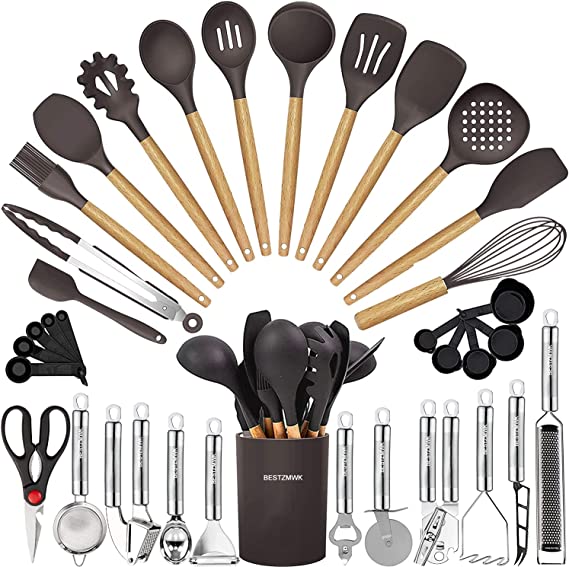College is a time of newfound freedom, personal growth, and, of course, tight budgets. One of the biggest challenges students face is figuring out how to eat well without spending all their money on food. Whether you’re living in a dorm or an off-campus apartment, here are some practical tips to help you maintain a balanced diet without breaking the bank.
Smart Grocery Shopping
The first step to eating well on a budget is smart grocery shopping. Always make a list before you go to the store and stick to it. This will help you avoid impulse buys that can quickly add up. Buying in bulk can also save you money in the long run, especially for non-perishable items like rice, pasta, and canned goods.
🌟 Pro Tip: If you’re new to cooking and don’t know where to start, the “College Cooking 101: Your Ultimate Guide to Easy and Healthy Meals” eBook is a fantastic resource. It offers a variety of affordable recipes that are perfect for college students. 🌟
Take Advantage of Student Discounts
Many grocery stores and local markets offer student discounts. All you need to do is show your student ID, and you could save anywhere from 5% to 10% on your total bill. Every little bit helps when you’re on a tight budget!

Meal Planning is Key
Planning your meals for the week can save you both time and money. When you know exactly what you’re going to eat, you can buy only the ingredients you need, reducing waste and saving money. Plus, meal planning helps ensure that you’re getting a balanced diet.
📚 Resource Alert: The “College Cooking 101” eBook includes a section on meal planning, offering tips and tricks to make the process even easier. It’s a must-read for any college student looking to eat well on a budget. 📚
Learn Basic Cooking Skills
You don’t have to be a gourmet chef to eat well in college. Learning a few basic cooking skills can go a long way. Knowing how to make a simple stir-fry, pasta dish, or even a homemade pizza can save you a lot of money compared to eating out or ordering in.
Utilize Your Freezer
Don’t underestimate the power of your freezer. Cooking large meals and freezing portions for later is a great way to save time and money. Plus, it’s always nice to have a home-cooked meal ready to go when you’re swamped with exams.
👩🍳 Get Inspired: If you’re looking for easy recipes that are perfect for batch cooking and freezing, check out the “College Cooking 101: Your Ultimate Guide to Easy and Healthy Meals” eBook. It’s packed with ideas that are both delicious and budget-friendly. 👩🍳
Eating well in college doesn’t have to be a financial burden. With a little planning and some smart choices, you can enjoy a balanced diet without emptying your wallet. And remember, when in doubt, the “College Cooking 101” eBook is always there to guide you through the culinary challenges of college life.
Don’t Skip Breakfast
We’ve all heard that breakfast is the most important meal of the day, and it’s especially true for college students. A nutritious breakfast can give you the energy you need to focus in class and be productive throughout the day. Simple options like overnight oats, scrambled eggs, or a smoothie can be both budget-friendly and quick to prepare.
🍳 Quick Tip: For more easy and nutritious breakfast ideas, the “College Cooking 101: Your Ultimate Guide to Easy and Healthy Meals” eBook has got you covered. It’s a treasure trove of quick recipes that can help you start your day right. 🍳
Be Snack-Smart
Snacking can be a budget-killer if you’re not careful. Those vending machine visits and coffee shop runs can add up quickly. Instead, try to keep some healthy snacks on hand, like fruit, nuts, or yogurt. These can be just as satisfying and are much better for both your health and your wallet.
Get Creative with Leftovers
Don’t let leftovers go to waste; they can be the basis for a whole new meal. For example, last night’s roasted vegetables can be tossed into a frittata or mixed with some quinoa for a quick and easy lunch. The key is to think ahead when you’re cooking your original meal.
🍲 Leftover Lifesaver: The “College Cooking 101” eBook includes a section on how to repurpose leftovers into new meals, helping you stretch your food budget even further. 🍲
Invest in Good Storage Containers
Good storage containers are a one-time investment that can save you a lot of money in the long run. They can keep your food fresh for longer, reducing waste. Plus, they’re perfect for taking meals or snacks with you on the go, helping you avoid the temptation of fast food or convenience store snacks.
Share the Cooking Responsibilities
If you live with roommates, consider setting up a cooking schedule where each person is responsible for cooking dinner one night a week. This can be a fun way to try new recipes and share the costs of groceries.
👨🍳 Group Cooking Ideas: For recipes that are perfect for sharing and easy on the wallet, don’t forget to consult the “College Cooking 101: Your Ultimate Guide to Easy and Healthy Meals” eBook. It’s a great resource for group cooking. 👨🍳
Eating well in college is more than possible, even on a tight budget. With a little planning, some basic cooking skills, and the right resources, you can enjoy nutritious and delicious meals every day. And for those days when you’re in need of some culinary inspiration, the “College Cooking 101” eBook is just a click away.
As an Amazon Associate we earn from qualifying purchases through some links in our articles.




